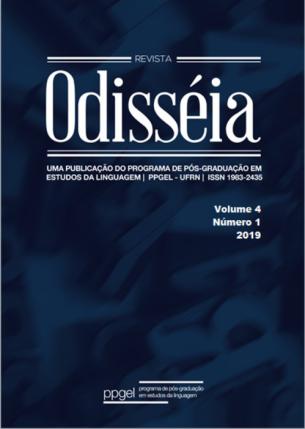The Great Gatsby and the character Nick Carraway as a frontier being
DOI:
https://doi.org/10.21680/1983-2435.2019v4n1ID16278Keywords:
Literature, Semiotics, Character, Frontier Being, ResignificationAbstract
The Great Gatsby, by F. Scott Fitzgerald, first published in 1925, is one of the most important novels in the American literary canon. In his text, Fitzgerald presents sociocultural relations of the 1920s in the United States, period also known as “the Jazz Age”, in which significant sociocultural changes occurred. The narrative is told from the perspective of character Nick Carraway. Therefore, this article aims at analyzing the position of the character as a frontier being, once Carraway attends different social settings, but does not belong to any of them. Hence, our hypothesis is that as a frontier being, the character reveals sociocultural problems of his time. As to the theoretical basis of this study, we resorted to Lótman’s (1996) studies about the semiotics of culture and to Bakhtin's (2011) discussion on literary character. The result indicates that it is through the frontier position of the character that social, moral, and cultural problems are revealed to the reader.
Downloads
Downloads
Published
How to Cite
Issue
Section
License
Thisa work has been licensed under Creative Commons - Atribuição - NãoComercial - CompartilhaIgual 3.0 Não Adaptada.


















